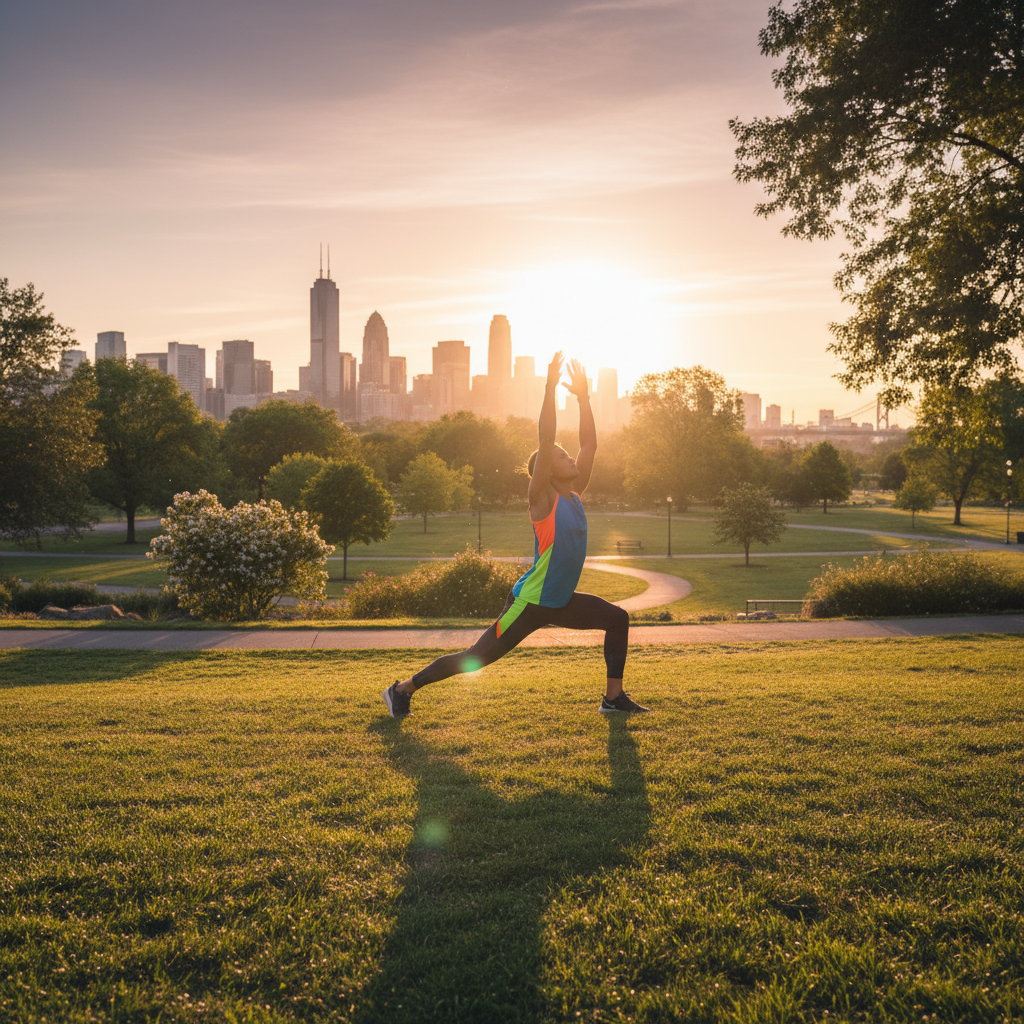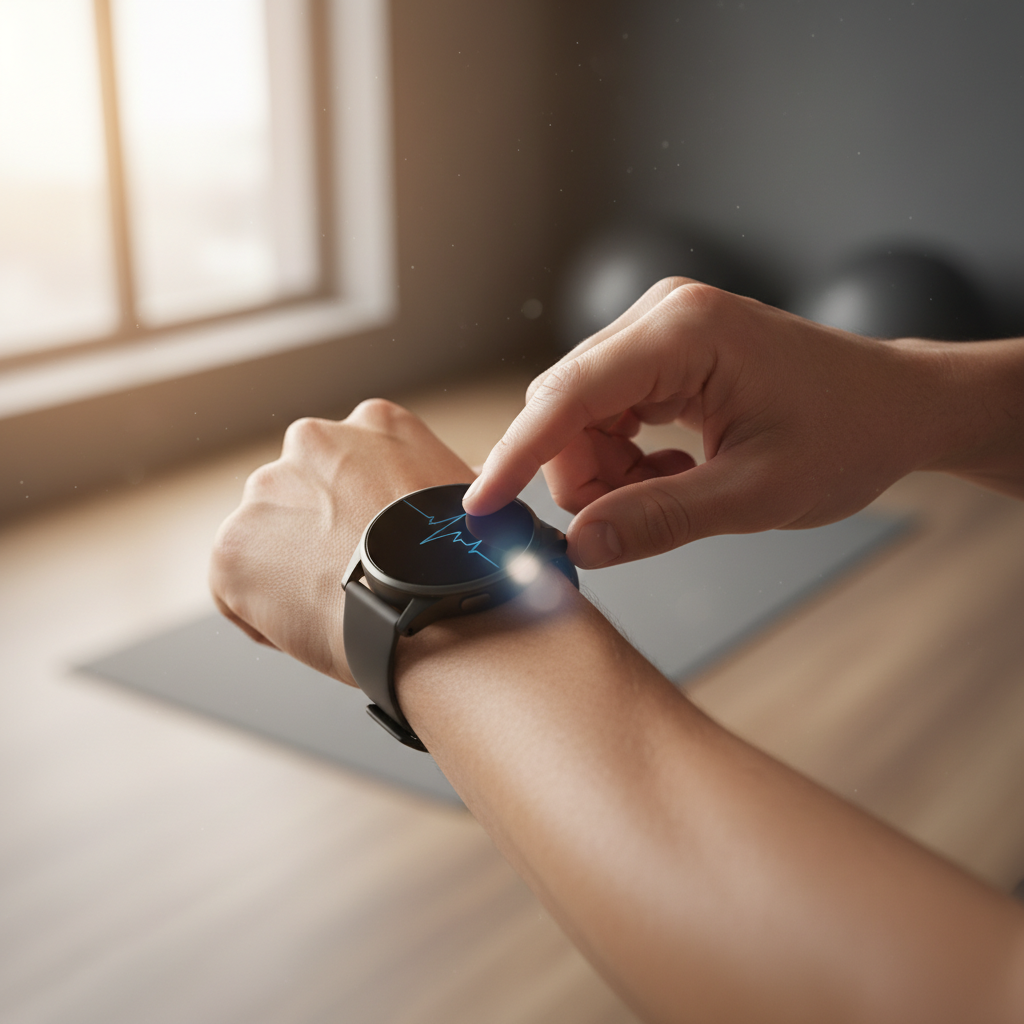
Table of Contents
Introduction
Here’s something that might surprise you: the time you choose to exercise could be just as important as the workout itself. Whether you’re someone who jumps out of bed ready to conquer the world or you need three cups of coffee before forming complete sentences, your workout timing can make or break your fitness results. And honestly? Finding that sweet spot where exercise actually fits into your life (instead of feeling like another chore) is what separates people who stick with it from those who don’t.
Your body isn’t the same machine at 6 AM as it is at 6 PM. We’ve got these internal clocks—circadian rhythms—that are constantly shifting our hormone levels, muscle function, and recovery abilities throughout the day. Some people are absolute powerhouses in the morning, cranking out workouts that set them up for an incredible day. Others? They’re practically zombies until noon but turn into workout warriors after dinner. There’s no right or wrong here, just what works for your unique biology and lifestyle. If you’re new to this whole fitness thing, checking out fitness challenges for beginners can help you figure out what feels sustainable, regardless of when you decide to move.
Let’s be real—staying motivated to exercise is tough for most of us. But here’s where timing becomes your secret weapon. Morning workouts? You get them done before the world starts demanding your attention. No emails, no meetings, no “just five more minutes” of scrolling. Evening sessions might be your thing if you’re someone who needs to blow off steam after a long day, or if you love the social aspect of group fitness classes. The key is working with your natural tendencies instead of fighting them. For some solid strategies on keeping that motivation alive (trust me, we all need help with this), take a look at how to stay motivated to exercise. Whether you’re chasing weight loss, building strength, or just trying to feel better in your own skin, the right timing can turn exercise from a burden into something you actually look forward to.
Now, here’s where things get interesting: when you work out affects how you should fuel your body. Think about it—your pre-workout snack at 6 AM hits differently than your post-work meal at 7 PM. Your muscles need different things at different times, and getting this right can seriously amplify your results. That’s where resources like post workout recovery foods and nutrition for athletes become game-changers. And if you want to nail the bigger picture of eating well (because let’s face it, you can’t out-exercise a poor diet), how to maintain a balanced diet covers the fundamentals that’ll support your workouts no matter when you choose to sweat.
What You’ll Learn in This Guide
We’re going to dig into the science and practical reality of workout timing, helping you find that perfect window where everything just clicks. You’ll discover the real benefits of different exercise times and get actionable strategies to make it work for your life.
- Benefits of Morning Exercise: Discover how starting your day with exercise can boost metabolism, improve mental focus, and enhance your sleep patterns for sustained health.
- Advantages of Afternoon or Evening Workouts: Learn why some find better performance, increased muscle strength, and stress relief later in the day, fitting their lifestyle more naturally.
- Personal Considerations: Understand how your chronotype, daily schedule, fitness goals, and nutrition habits play critical roles in determining the best exercise time for you.
- Optimization Strategies: Get practical tips to adjust your workout timing gradually, monitor your body’s responses, and align your routine with your biological rhythms for consistent success.
As we walk through this together, you’ll start seeing patterns in your own energy and preferences that you might never have noticed before. We’ll also touch on functional fitness workouts—those practical, real-world movements that you can adapt to any schedule. Because at the end of the day, the best workout is the one you’ll actually do consistently.
Whether you’re just getting started or you’ve been at this for years but something’s not quite clicking, this guide will give you the tools to work with your body’s natural rhythms instead of against them. Finding your optimal workout time isn’t about following someone else’s routine—it’s about discovering what makes you feel strongest, most energized, and genuinely excited to move. Ready to figure out your personal fitness sweet spot?
Coming up, we’ll break down what actually happens in your body during morning versus evening workouts, explore the factors you should consider when planning your exercise schedule, and share strategies that’ll help you optimize whatever timing you choose. By the time we’re done, you’ll have a clear roadmap for harnessing your body’s natural rhythms to get the most out of every workout.

Here’s the thing about exercise timing—it’s way more personal than most people realize. Sure, we all know that working out is good for you. But when you exercise? That can make or break your entire fitness journey. Some people are absolute morning warriors, crushing their workouts before the sun comes up. Others need the day to wake them up first. The truth is, your body has its own internal clock, and working with it (instead of against it) can transform not just your workouts, but how you feel all day long. Let’s dig into what makes morning and evening exercise tick, so you can figure out what actually works for your life.
Benefits of Exercising in the Morning
Morning workouts have this almost cult-like following, and honestly? There’s good reason for it. When you exercise first thing, you’re basically jump-starting your metabolism for the entire day. Think of it like revving your car’s engine—everything runs better afterward. Your body keeps burning calories at a higher rate, which is pretty sweet if you’re trying to manage your weight. But here’s what really gets people hooked: that mental clarity. There’s something about starting your day with movement that just sharpens your focus. You’ll walk into meetings feeling more alert, tackle your to-do list with more energy, and generally feel like you’ve got your act together. Plus, let’s be real—exercising before life gets in the way means you actually do it. No “I’ll work out after work” promises that somehow never happen. If you’re thinking about jumping on the morning workout train, check out these effective strategies for starting a fitness routine that’ll help you build habits that actually stick.
Now, here’s something interesting that not everyone talks about: morning exercise can actually help you sleep better. I know, I know—it sounds backwards. But when you move your body early in the day, you’re helping regulate your internal clock. Your body learns when it’s time to be awake and when it’s time to wind down. And unlike evening workouts, there’s zero chance that morning exercise will keep you wired at bedtime. You’re also way less likely to skip your workout because you’re “too tired” or because happy hour plans suddenly appeared. Life has a funny way of filling up the later hours of the day, but mornings? Those are usually yours to control. If you need help staying consistent (and who doesn’t?), these tips to stay motivated to exercise include smart ways to align your sleep schedule and fuel your body for those early sessions.
Advantages Include:
Let’s break down exactly why morning workouts might be your new best friend:
- Boosted metabolism to start the day: Your metabolic rate gets a serious kick in the pants with morning activity. This means you’re burning more calories throughout the day, and your body gets better at managing blood sugar and appetite. It’s like having a more efficient engine running under the hood.
- Improved mental focus and energy throughout the day: Exercise releases those feel-good endorphins that don’t just make you happy—they make you sharp. Your brain gets primed for peak performance, and you’ll notice you can concentrate better and feel more energized for whatever the day throws at you.
- Consistency due to fewer distractions and schedule conflicts: Morning means fewer things can derail your plans. No surprise work deadlines, no social obligations, no “I’m too exhausted” moments. It’s just you, your workout, and a clear path to building rock-solid habits.
- Promotes better sleep patterns: Working out in the morning helps sync your body clock with natural daylight rhythms. This makes falling asleep easier and helps you get that deep, restorative sleep your body craves. Better sleep, better workouts—it’s a beautiful cycle.
Those are some pretty compelling reasons to set that alarm a little earlier. But before you commit to becoming a morning person, let’s look at what the afternoon and evening crowd is onto. Because honestly? They’ve got some solid points too.
Benefits of Exercising in the Afternoon or Evening
Not a morning person? Don’t worry—you’re definitely not broken. Afternoon and evening workouts come with their own set of superpowers. For starters, your body temperature naturally rises as the day goes on, and that’s actually a good thing for exercise. Warmer muscles work better, move more freely, and are less likely to get injured. It’s like the difference between starting a cold car versus one that’s already warmed up. You might find you can lift heavier, run faster, or stretch deeper in the afternoon than you ever could at 6 AM. Evening workouts also serve as an incredible stress-buster after a long day. Had a rough meeting? Annoying commute? Channel all that tension into your workout and walk away feeling like a new person. For some solid workout ideas that work great later in the day, check out these functional fitness workouts that build real-world strength and movement patterns.
There’s also the social factor that you just can’t ignore. Evening fitness classes and sports leagues are where the party’s at. You’ll find more group options, more energy from other people, and honestly, more fun. Working out with others can push you harder than you’d push yourself, plus you might make some friends along the way. And let’s talk about fuel—by afternoon, you’ve had time to eat proper meals and hydrate throughout the day. Your energy tanks are topped off, which can lead to better performance and recovery. Just keep in mind that super intense workouts right before bed might leave some people too wired to sleep well. Pay attention to how your body responds, and don’t forget to fuel your recovery properly with the right post workout recovery foods to maximize those evening training sessions.
Advantages Include:
Here’s what makes afternoon and evening workouts so appealing:
- Higher body temperature potentially improving performance: As your core temperature rises throughout the day, your muscles become more elastic and your enzymes work more efficiently. Translation? You might actually perform better and have less risk of injury when your body is naturally warmed up.
- Increased muscle strength and flexibility later in the day: Research shows that most people hit peak strength and mobility in the afternoon. If you’re doing heavy lifting or working on flexibility, this natural advantage can make a real difference in your results.
- Stress relief after a busy day: Think of evening exercise as your daily reset button. Physical activity helps lower stress hormones and releases tension, turning a hectic day into a calm evening. Your mental health will thank you.
- More social opportunities in group fitness settings: Evening hours are prime time for classes, sports leagues, and group activities. The energy is higher, the options are better, and you’ll find plenty of motivation from working out alongside others with similar goals.
So there you have it—both morning and evening workouts have legitimate advantages. The real question isn’t which one is “better” (because that’s different for everyone), but which one fits your body, your schedule, and your life. Ready to figure out your perfect workout timing? Let’s look at the personal factors that’ll help you make the call.

Here’s what I’ve learned after years of experimenting with workout timing: there’s no magic hour that works for everyone. But understanding how your body responds throughout the day? That’s game-changing. Morning workouts have this amazing ability to kickstart your metabolism and set you up for a focused, energetic day. Plus, getting it done early means no excuses later—life can’t derail your plans if you’ve already crushed your workout before most people have their coffee.
But hold on—evening exercisers aren’t missing out. Your body temperature runs higher later in the day, your muscles are naturally more flexible, and you might actually perform better. (There’s real science behind this.) Evening workouts also give you something to look forward to after a stressful day. It’s like hitting a reset button on your mood.
The real secret? It comes down to you. Are you naturally wired to bounce out of bed at 6 AM, or do you hit snooze until the last possible second? Your chronotype matters more than any fitness guru’s recommendation. Same goes for your schedule, your goals, and even what you had for lunch. Some people crush cardio on an empty stomach; others need fuel in the tank. Listen to your body—it’s smarter than you think.
Ready to put this into action? If you’re just starting out, check out our guide on fitness challenges for beginners—it’s packed with realistic goals that won’t overwhelm you. Struggling to stick with it? Our strategies on how to stay motivated to exercise will keep you going when motivation dips (and it will). For those focused on burning fat, dive into our cardio workouts for fat burning guide. And if you’re starting from scratch, our comprehensive how to start a fitness routine will walk you through everything step by step. Don’t forget about nutrition—our insights on nutrition and mental health show just how connected your diet and overall wellness really are.
Bottom line? The best workout time is whatever time you’ll actually show up. Experiment a little. Try morning workouts for a week, then switch to afternoons. Pay attention to how you feel, how you perform, and most importantly—which one you actually enjoy. Because here’s the truth: consistency beats perfection every single time. Whether you’re chasing weight loss goals (our fitness tips for weight loss can help with that) or just want to feel stronger, the routine you stick with is the one that wins.
Frequently Asked Questions
-
Is morning exercise better for weight loss?
- Morning workouts boost metabolism and can aid weight loss, but overall consistency and total activity matter most.
-
Can I build muscle equally well at any time of day?
- Muscle growth relies more on nutrition and training intensity than the specific time you work out.
-
What if I’m not a morning person but want to exercise early?
- Gradually shifting your schedule and maintaining consistent sleep patterns can help adjust your body’s clock effectively.
-
Does exercising late at night affect sleep?
- Intense late workouts might disrupt sleep for some, while light activity is generally less likely to interfere with rest.
-
How important is a consistent workout schedule?
- Regular workout timing helps the body adapt and improves overall exercise effectiveness and results.


